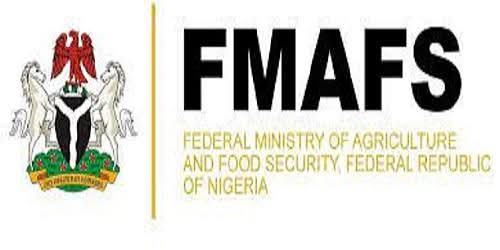Prayer Not Policy: Agric Ministry debunks claims over Food Security Strategy

The Federal Ministry of Agriculture and Food Security (FMAFS) has clarified that a recent staff prayer session was a welfare initiative not a government policy for tackling Nigeria’s food security crisis. This clarification follows public backlash and media misinterpretation of an internal memo announcing a spiritual gathering themed “Divine Intervention for Protection and National Development.”
In a statement signed by Ezeaja Ikemefuna behalf of the Director of Information, the ministry said the prayer session was held in response to a string of untimely deaths among senior staff, which had caused significant concern and anxiety within the ministry. “The prayer was to address the apprehensiveness of staff over the recent untimely and successive death of management staff of the Ministry,” the statement read.
“It must be emphasised that this is NOT an official policy by the Ministry to address agriculture and food security issues in the country.” The ministry added that the prayer session was part of its broader staff welfare programme, which also includes monthly aerobic exercises, the provision of a gymnasium, and regular medical check-ups.
Focus Remains on Strategic Action
FMAFS reaffirmed its commitment to addressing food security through well-defined policy initiatives, aligned with President Bola Ahmed Tinubu’s Renewed Hope Agenda.
Among the ministry’s ongoing interventions are:
Distribution of essential grains: 42,000 metric tonnes of grains and 58,200 metric tonnes of milled rice under its price stabilisation programme.
Farmer support schemes: Procurement of over 1,000 tractors and the free distribution of critical inputs like fertilisers and agrochemicals.
Access to finance: ₦1.5 trillion recapitalisation of the Bank of Agriculture.
Digital transformation: Launch of the National Electronic Extension Platform (NEEP) to improve farmer advisory services.
Rural infrastructure: $600 million secured under the World Bank-backed RAAMP project to rehabilitate rural roads.
Fertiliser support: 2,150,000 bags of fertilisers donated by the Central Bank of Nigeria to curb food inflation.
Farmer cooperatives and training: Strengthening of cooperative societies through the Federal Cooperative Colleges.
Subsidy programme: Implementation of the National Agricultural Growth Scheme Agro-Pocket (NAGS-AP) to provide subsidised inputs to registered farmers.
The ministry urged the public to disregard the misinformation and reiterated that its policy focus remains firmly rooted in data-driven strategies and impactful agricultural reform.






